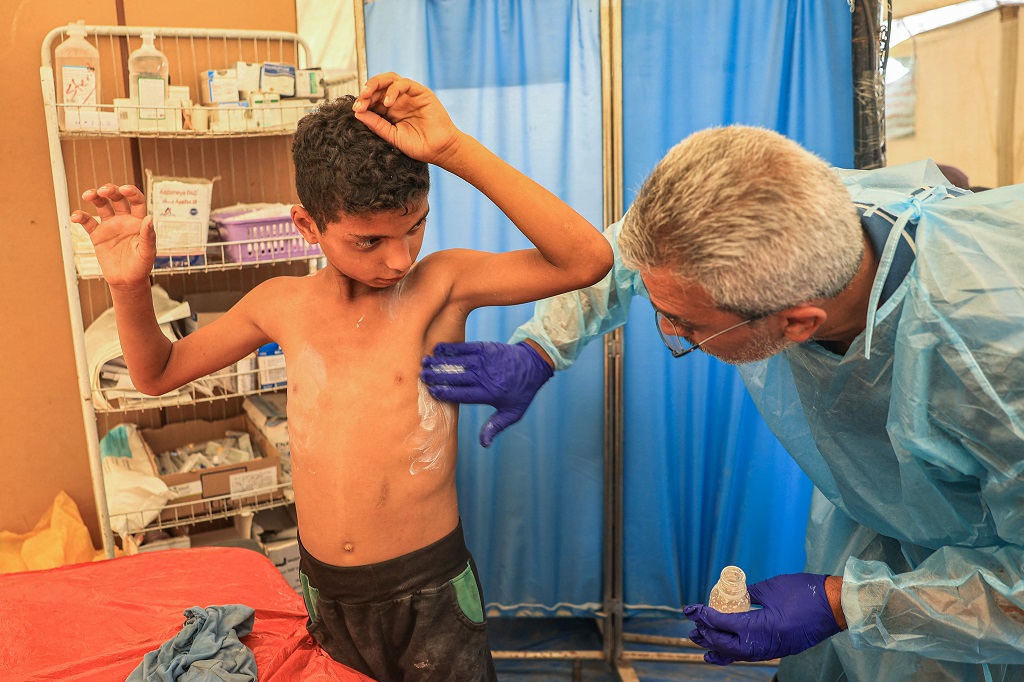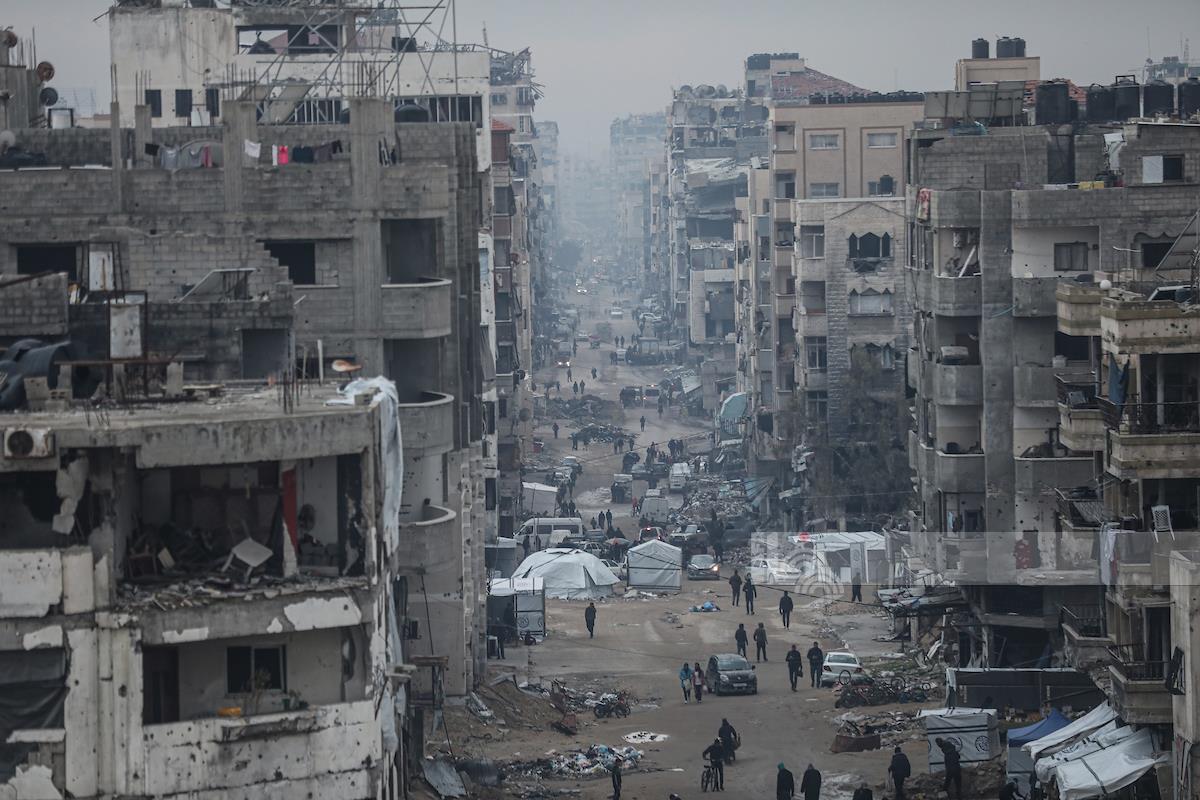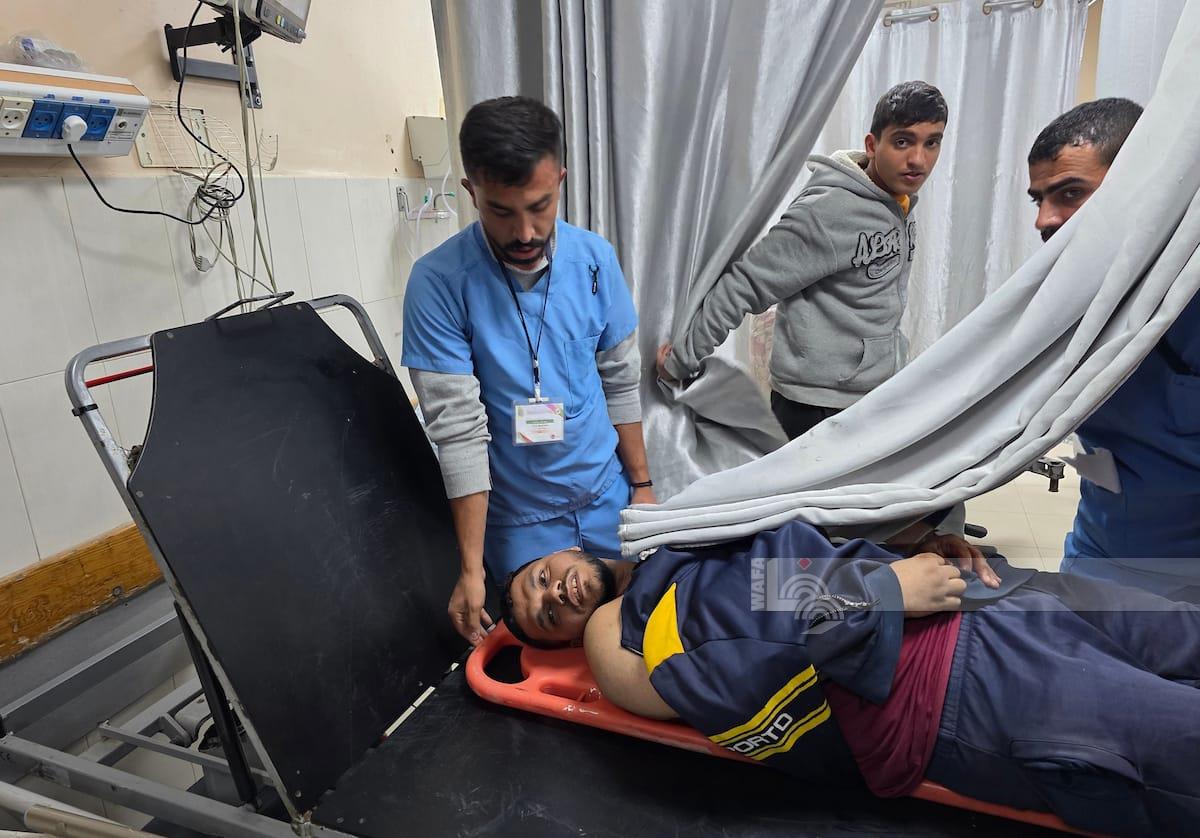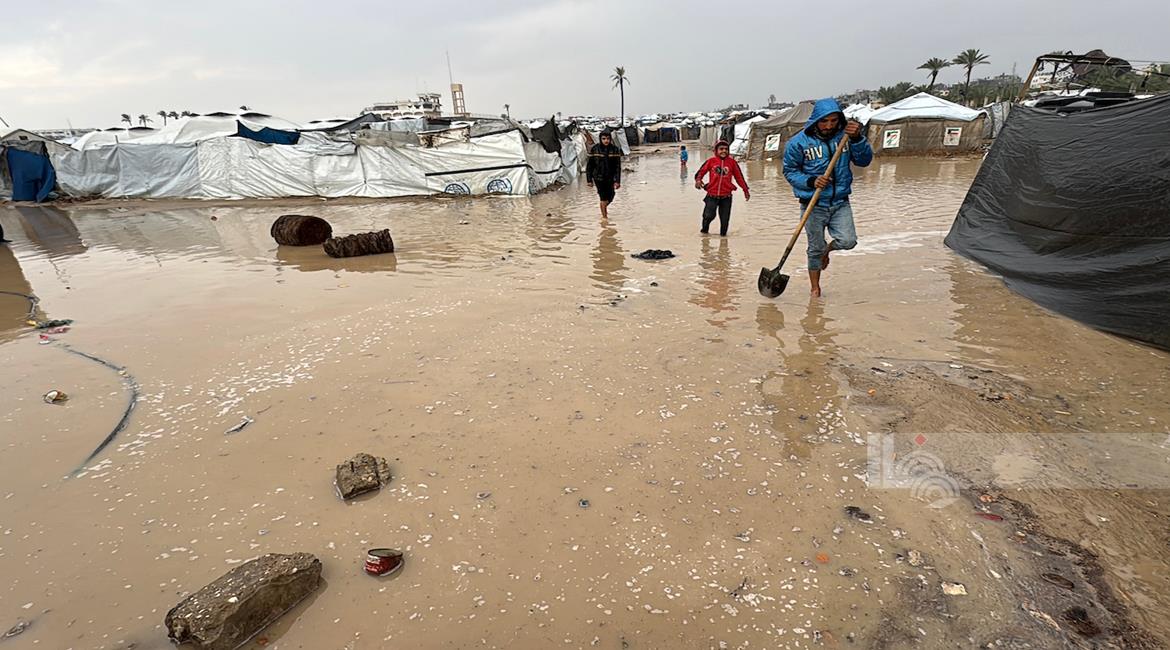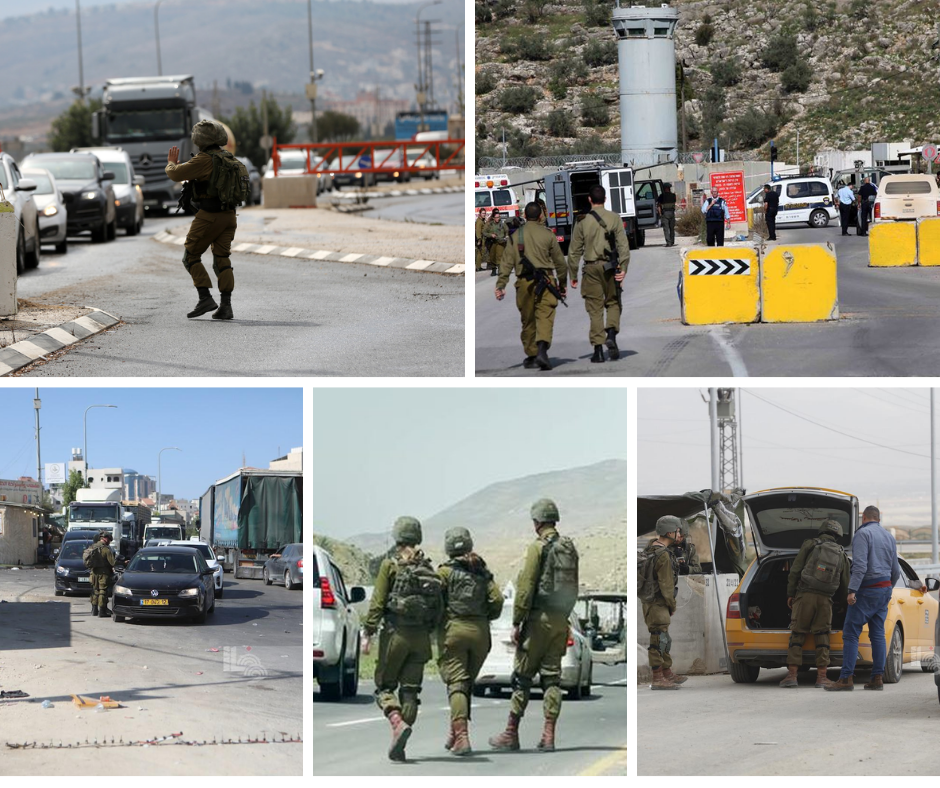GAZA, Thursday, July 4, 2024 (WAFA) – Amidst the already dire humanitarian situation in Gaza, a new health crisis is looming large in the displacement camps in central Gaza. The spread of scabies, a highly contagious skin disease, is rapidly worsening due to the accumulation of sewage water between tents and the lack of personal hygiene items such as soap and bathing facilities.
Approximately two million displaced Palestinians reside in camps and shelters across Gaza, enduring harsh living conditions with heightened risks of disease and epidemics.
Compounding the health risks is a severe shortage of medications and medical supplies, exacerbating complications for patients and the afflicted. Dozens have tragically perished since October 7 last year due to these shortages.
With water and sanitation facilities in short supply, compounded by overcrowded living conditions, the scene grows increasingly complex, fostering the spread of skin diseases, particularly scabies.
Since the onset of Israeli attacks on the region, health organizations, human rights groups, and UN bodies have repeatedly warned of disease outbreaks among displaced populations due to overcrowding and declining personal hygiene.
Medical sources confirm that thousands of patients in Gaza face life-threatening situations due to medication shortages and the destruction of much of the healthcare infrastructure by Israeli forces.
Hospitals and health facilities have been targeted during the onslaught, rendering most of Gaza's healthcare system inoperative, thereby endangering the lives of patients and casualties, according to official and UN data.
At the "Nakheel" shelter in Deir al-Balah, central Gaza, sewage water collects between the tents, where children play amidst these contaminated waters due to the lack of space elsewhere. These polluted waters attract flying insects, including mosquitoes, and other pests that invade the tents, adding to the misery of the displaced.
One displaced resident, Um Mubarak Abu Khousa, lamented the deteriorating conditions inside the camp, saying, "We suffer from sewage leaks and the spread of diseases." She told Anadolu Agency, "I suffer from hypertension and had a stroke, and all our children have fallen ill due to poor living and health conditions."
She described how worms infest their tent due to the lack of hygiene and insecticides, saying, "Every day, in the early morning hours, I clean out the worms by sweeping them outside."
She emphasized that life inside the displacement tents is a compounded ordeal, with sewage leaks, disease, insects, extreme heat, water scarcity, and financial instability.
Moreover, amidst the unavailability of necessary treatments for their illnesses, Um Mubarak highlighted the case of her grandchild who recently fell into sewage water, resulting in a skin disease outbreak.
The medical director at the shelter, Sami Hmeid, issued a grave warning about a potential environmental disaster within the displaced camps regarding the widespread outbreak of scabies.
He attributed the scabies spread to stagnant sewage water, which has become a fertile breeding ground for the mites responsible for the disease, exacerbated by the lack of chemical treatments over the past nine months.
Hmeid stressed the critical shortage of medicines and specialized medical treatments for skin diseases in Gaza, describing the situation as "extremely challenging."
He pointed out that essential therapeutic supplies for treating burns and sunburns are also absent from the market, appealing for international, local, and civil society entities to contribute urgently to supply dermatological treatments.
In June last year, medical sources reported a 70% depletion of essential drug stocks from health depots, warning of imminent shortages of medicines and medical supplies, particularly for specialized conditions like cancer and kidney failure.
The ongoing Israeli aggression in Gaza has resulted in over 125,000 casualties and injuries, predominantly children and women, with more than 10,000 individuals still missing, amid widespread destruction and famine that has claimed the lives of scores of children.
Despite calls from the international community for an immediate ceasefire and humanitarian intervention, Israel, the occupying power, persists in its war, disregarding UN Security Council resolutions and International Court of Justice orders to cease the assault immediately and improve Gaza's dire humanitarian situation.
M.N




